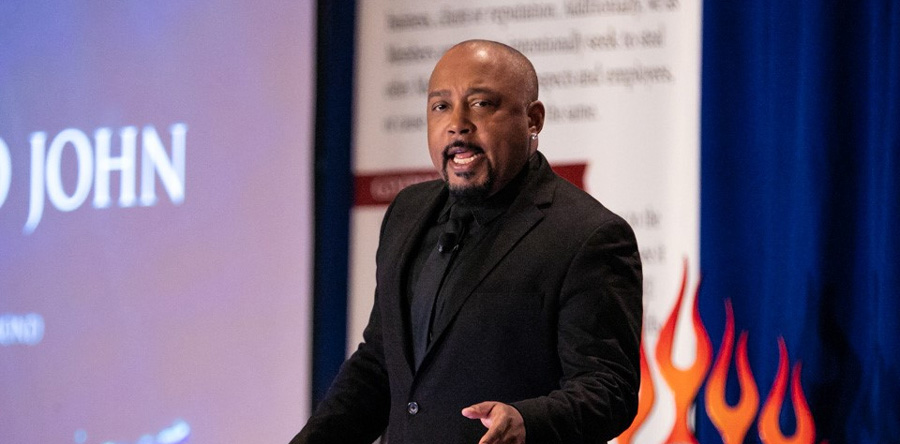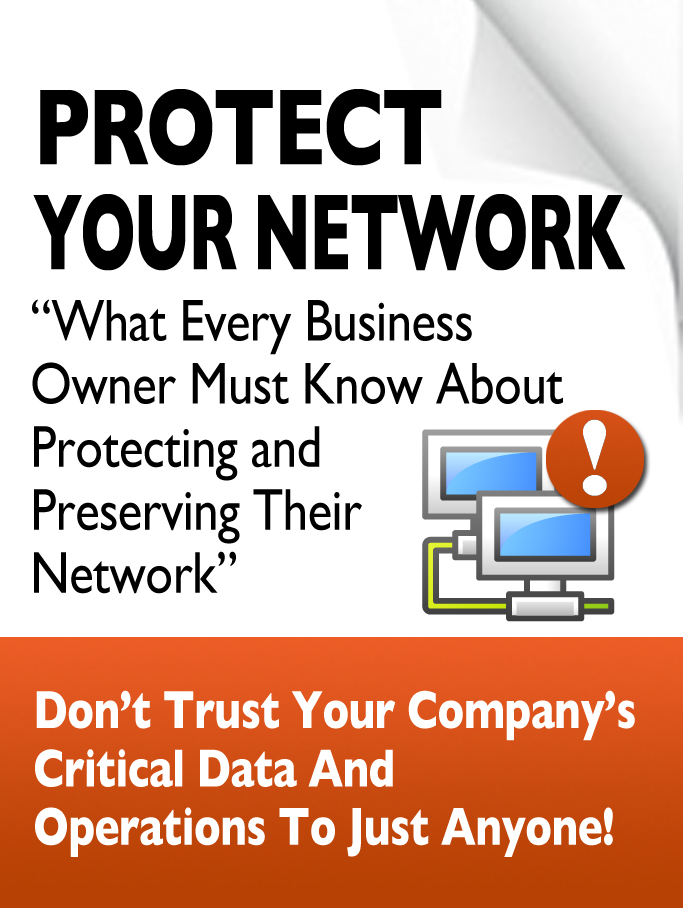
September 2019

Top 4 Strategies I Learned From Daymond John To Improve Leadership And Grow My Business
This past June, I got to hear the one and only Daymond John speak at a small private event. You may know Daymond as a successful entrepreneur who has appeared on the hit ABC show Shark Tank. Best known as the founder of the clothing brand, FUBU, he is also the author of The Power of Broke — an insightful look into his life and what he did to find success.
Daymond brought a lot of that insight to the room. While he had a lot of great things to say, there were four business strategies that really struck a chord with me — strategies any business can learn from to improve.
INVEST IN PEOPLE This is the most important thing for a business to realize, as Daymond put it. He talked about how he (and the Sharks) invests in people, not companies. Think about it: companies come and go. In fact, most companies will go. On the other hand, people learn from their experiences (good and bad), and they grow. Putting your people first is what gives companies staying power. Your team matters and your clients matter, and you should make every effort to ensure they know that.
DON’T BE REACTIVE — BE RESPONSIVE A lot of businesses are reactionary. This was a lesson Daymond learned working with prolific rapper and music producer LL Cool J in the late 1980s. When you react to something, you’re already behind the times. Part of LL Cool J’s success in the rap world was being responsive. He didn’t just jump on trends, he helped create them. He recognized the rap world was constantly changing in terms of sound, lyrics and style (including his fashion).
Daymond was able to market his FUBU clothing because he was doing things other clothing makers weren’t. He was taking risks, working exceptionally hard (another one of Daymond’s points was “always be hustling”) and was willing to respond to changes in the marketplace.
BE TRUE TO YOUR WORD When Daymond first got the call from Mark Burnett to join Shark Tank, Daymond knew he had to turn down the show. Signing onto Shark Tank meant he couldn’t appear on any other shows, and he was already working with the Kardashians — a family who, at the time, wasn’t quite the household brand name they are today.
Daymond told Burnett he was going to stick with the Kardashians because he had given them their word (and likely signed a few contracts with them). He wanted to help the Kardashians get their brands moving. He saw their potential. The family got word that Daymond had turned down the Shark Tank deal and said, “No, don’t let us get in your way!”
Daymond also recognized that the Kardashians are savvy businesspeople. As he put it, “They know their analytics.”
"Daymond was able to market his clothing because he was doing things other clothing makers weren’t."
And that’s true! That’s why they found success on TV and in stores around the world where their many products are sold. But he wasn’t about the leave them high and dry for his own gain. Eventually, they found a solution, and he joined Shark Tank, but he wasn’t going to compromise his integrity. And that’s something none of us should compromise on.
REMEMBER, YOU ARE THE BRAND The biggest brands are distilled down to three, four, five words. People know these words by heart, including Nike (Just Do It) and Apple (Think Different). You should have your own 2-5 words. “If you can’t describe yourself in 2-5 words and you walk into a room, you leave it up to us to interpret.”
Another thing to remember is that people associate your social media with your brand — whether you’re a business intentionally posting content related to your brand, or you’re an individual posting about your last vacation. What you share on social media is shared through a lens — your lens. Pictures, posts, you name it — it’s all a part of your brand.
That said, posting something negative will hurt that brand. It’s always important to be mindful of what you post and encourage your team to do the same. Having rules and policies regarding what can and cannot be shared on social media will go a long way in preventing a catastrophe.
These four points only skim the surface of what Daymond talked about, but these are crucial things we all can learn from. It was great to hear him speak and to hear his story, and I send my thanks to him for all of his wonderful insights!
Free Report: What Every Small-Business Owner Must Know About Protecting And Preserving Their Company’s Critical Data And Computer Systems

This report will outline in plain, nontechnical English the common mistakes that many small-business owners make with their computer networks that cost them thousands in lost sales, productivity and computer repair bills, and will provide an easy, proven way to reduce or completely eliminate the financial expense and frustration caused by these oversights.
Download your FREE copy today at
www.rangersolutions.com/protect
or call our office at (214) 329-1349
Shiny New Gadget Of The Month:

TC1200 Flashlight
Having a reliable flashlight can make a big difference, whether you’re on the job or just at home when the power goes out.
Meet the TC1200 Pro Tactical Flashlight, a flashlight designed with incredibly high standards. Made with aircraft-grade aluminum, it’s durable (it survived a 21-mile fall to Earth) and has a powerful beam is 25 times brighter than an ordinary flashlight (it boasts five modes: low, medium, high, strobe, and SOS — the strobe feature can even temporarily blind an animal or person, if necessary).
At 1200 lumens, this flashlight can shine a light on any situation. It uses three AAA batteries or 1 Li-ion rechargeable battery. Learn more at bit.ly/2NGAGB5!
CONFIDENCE

How can you build your confidence as a CEO, investor or entrepreneur? New CEOs have imposter syndrome. Private equity investors who just raised another $1 billion-plus fund read newspaper headlines about the coming recession and quietly gulp. Self-made billionaire entrepreneurs worry that their fortunes will take an embarrassing hit. Newly elected government leaders worry about whether their results will live up to their campaign promises.
We find that leaders are less confident when they obsess about things they can’t control, rather than taking action in the areas they can control.
The Wall Street Journal reported the results of a new survey (6/16/2019) by the Conference Board regarding what is on the minds of 800 CEOs.
External Hot-Button Issues
- Recession
- Global trade
- Politics
Internal Hot-Button Issues
- Attracting and retaining top talent
- Disruptive technologies
- Developing the next generation of leaders
What this survey says to me is this: it’s good to be aware of issues that are outside of your control – recession, global trade, politics. But it’s even more brilliant to master the things that are within your control – hiring and retaining top talent, developing digital capabilities and developing the next generation of leaders.
HOW MUCH CONFIDENCE DO YOU HAVE IN YOUR TEAM?
If you have a high degree of confidence in your team, then keep doing what you are doing to hire and develop them.
But if you don’t have a high degree of confidence in your team, then you should focus on hiring, developing and retaining more of the right people who fit your strategy – who can achieve the results you seek. How?
There are three ways to build confidence in your team. You can invest the time to master the skills and best practices around hiring, developing and retaining top talent yourself. Or you can engage ghSMART to do it for you. Or, what most of our clients do is engage ghSMART to solve this problem immediately and build your skills in this area for your long-term success. (A quick side note – I’m very proud to report that my colleagues achieved 99% “high” client-reported satisfaction over the past 12 months. So, to go with this confidence theme, I have a very high degree of confidence that my team will help you solve your #1 problem!)
A great way to build confidence in yourself as a leader is to build your confidence in your team. If you are the CEO of a $1 billion-plus revenue company or have raised at least a $1 billion fund, please reach out if you would like my team to help you build confidence in your team to deliver the results you want to achieve for customers, employees and shareholders.

Geoff Smart is chairman and founder of ghSMART. Geoff is co-author, with his colleague Randy Street, of the New York Times best-selling book, Who: A Method For Hiring, and the author of the No. 1 Wall Street Journal best seller Leadocracy: Hiring More Great Leaders (Like You) Into Government. Geoff co-created the Topgrading brand of talent management. He is the founder of two 501(c)(3) not-for-profit organizations. SMARTKids Leadership Program™ provides 10 years of leadership tutoring, and the Leaders Initiative™ seeks to deploy society’s greatest leaders into government. Geoff earned a BA in Economics with honors from Northwestern University, and an MA and PhD in Psychology from Claremont Graduate University.
Tips of the Month
6 Ways To Protect Your Business From Getting Hacked…Are You Doing All Of These?
- Know your data AND your risk. What kind of data are you storing? Knowing your data can inform you of your risk, and when you know your risk, you can respond with a plan to secure that data.
- Have backups. Losing data cripples businesses. Always schedule regular backup so you never have to worry about losing it.
- Encrypt your data. Encryption helps to ensure that only those who have permissions can access and read your data.
- Get better passwords. Most people use bad passwords or use the same passwords for every website. Cybercriminals take advantage of this. Use strong passwords, two-factor authentication, and a different password for EVERY website.
- Maintain defenses. Malware lurks in e-mails or unknown links on the web. It can harm your equipment, give hackers access to your data and hurt your business. Antimalware software coupled with a firewall can help block these threats.
- Educate. Your team can be your best defense. They should be educated on cyberthreats and what to do/not do when it comes to their “digital responsibility” within your company. CPO Magazine, 6/12/2019.
3 Ways Working Harder Can Slow The Growth Of Your Company
You’re not delegating. When you work too hard, it becomes easy to “take over” projects. You become a micromanager who loses sight of the team and doesn’t play to the strengths of the experts you hired to carry the load. If you’re not delegating, projects move less efficiently and you miss important details.
You’re not thinking creatively. Because you miss crucial details, you lack perspective, and a lack of perceptive makes it hard to think creatively, as research confirms. When a problem comes your way, you may not be able to solve it to the best of your abilities and you will end up creating a bigger problem.
Your business suffers. One person can do only so much and one person cannot scale a business successfully. If you want your business to grow, you MUST hand over much of the responsibility to others. Your business must be able to run without you in the building. Small Business Trends, 2/12/2019.



